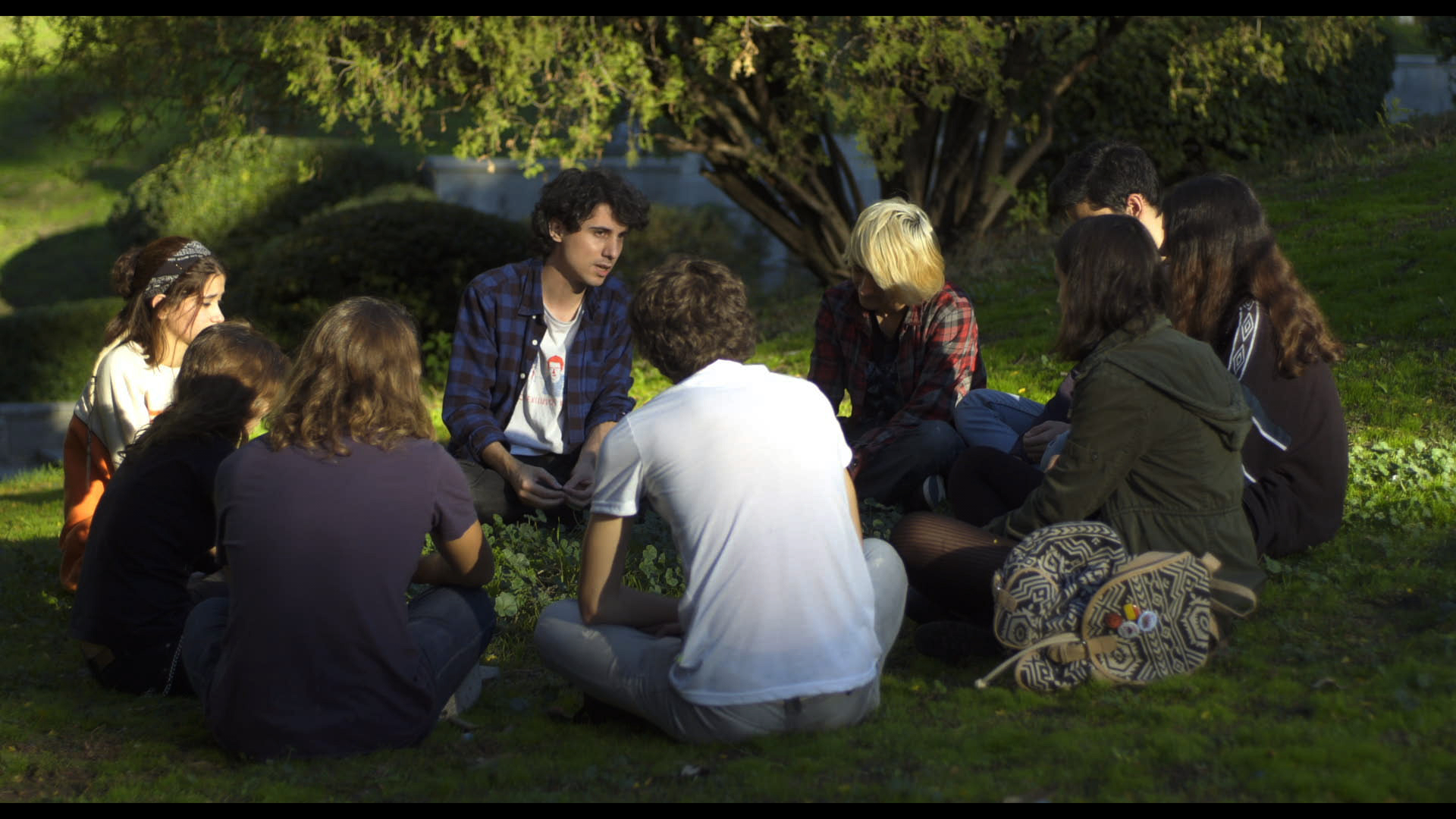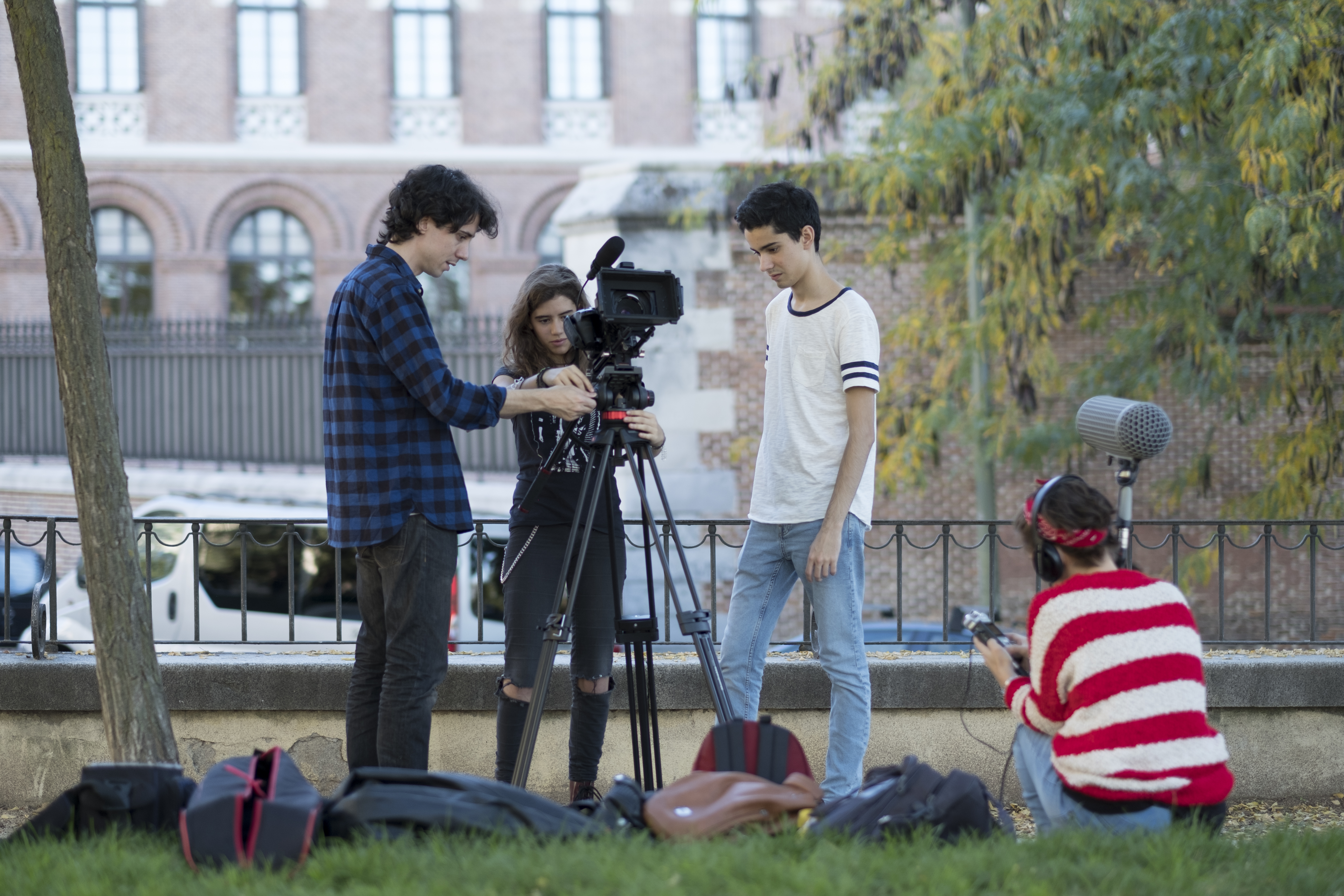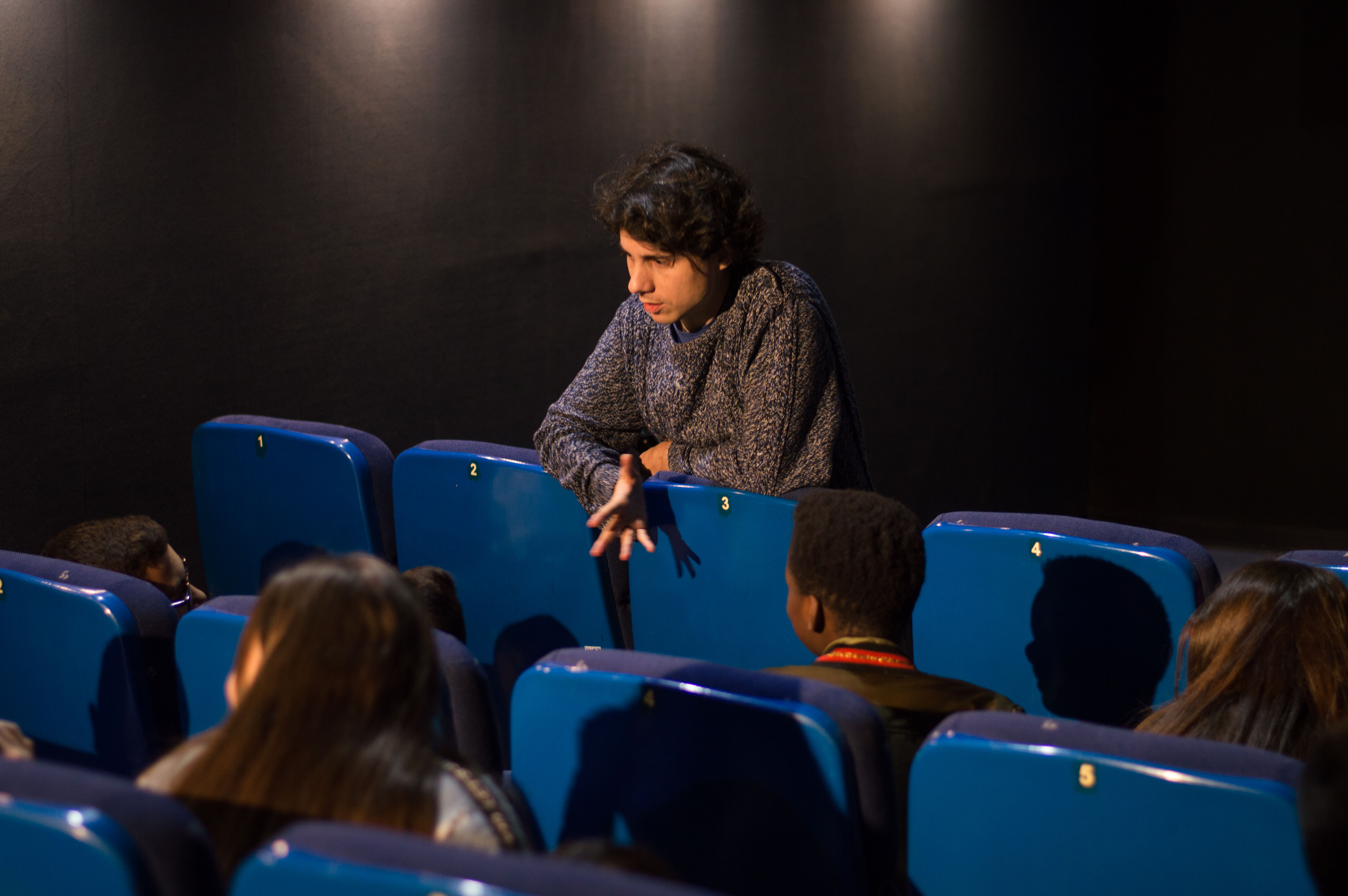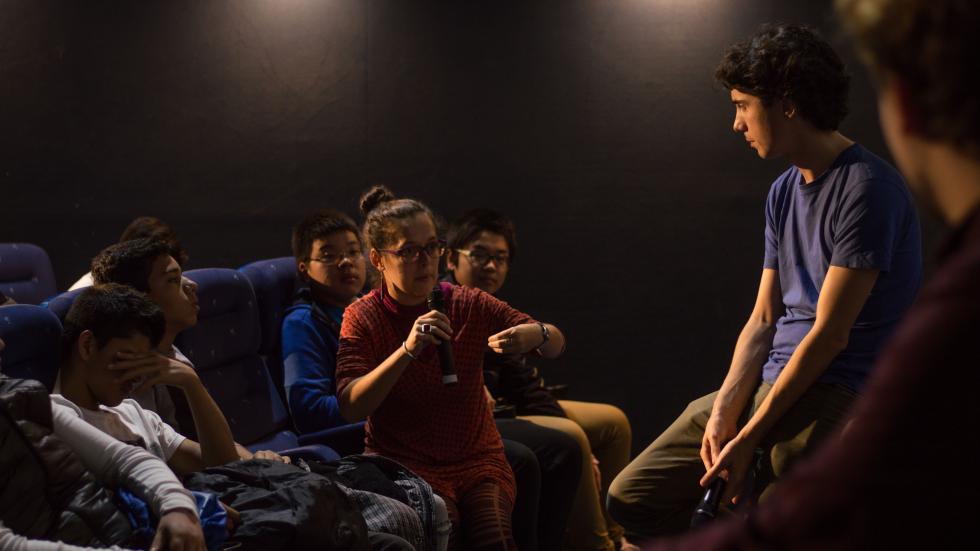Four feature films as director later, Jonás Trueba is already a filmmaker with a voice of his own. Son of Fernando and nephew of David, he made his debut in 2010 with 'Todas las canciones hablan de mí', followed by 'Los Ilusos' (2013), 'Los Exiliados Románticos' (2015) and 'La reconquista' (2016). He was also a writer on 'Más pena que Gloria', 'Vete de mí' and 'El baile de la Victoria'. Jonás Trueba now changes direction with an unusual project, open to the unpredictable.
Using meetings, talks and dramatized situations with adolescents, 'Quién lo impide' transcends traditional formats and the usual distribution channels and, as a living, collective project, it isn’t afraid to try things and to make mistakes. The result, to date, is made up of four pieces. Two of them, 'Sólo somos' and 'Si vamos 28, volvemos 28', will be presented at #15FestivalSevilla, in two sessions followed by a talk with the director. In a meeting with the press, Jonás Trueba explained the key points of the project:
The open structure
"I don’t know whether to call them films, pieces... So as not to call the project work in progress, I’d say it’s a kind of open film. I like to call it a film under way. There are four circumstantial pieces that work well in themselves. They’re not strictly closed, those edits are going to be modified. I suspect that there are going to be more pieces, there is also the wish to carry on filming. We’re not talking about monolithic pieces, really the project’s title says a lot in that sense: 'Quién lo impide', who will prevent us continuing to do this, continuing to work. Really, I think that within a while, I don’t know when, perhaps when we’re all old, there’s going to be a film called 'Quién lo impide' that will take in everything ".

The transition
"When I finish a film, maybe because I start to hate it immediately, the next one comes into my head. I usually think that my works are reactive and I end up realizing the continuity they have. With 'La reconquista', for example, I had the feeling that a period, a stage in my career, was ending. But deep down, 'Quién lo impide' was born from it, from the desire to continue collaborating with Candela Recio and Pablo Hoyos, its two adolescent protagonists".
The starting point
"When you propose something that you resist defining as a “film” and you add “by adolescents”, the adults listening to you are attacked by laziness, paternalism... and if you say it to journalists, they run off, there is an immediate apartheid. The starting device for the project was me with a camera, and them willing to see what was happening. Everything grew from there. We extended the framework and the conversations, new kids appeared, and we carried on with those who had most feeling... José Luis Guerin talked about "getting into situation ", which is an expression that I think fits well with this project. And it’s different from the classic “mise-en-scène” that the director sets out. It’s a matter of observing, capturing what’s lived, and not fitting it into the idea you have when you prepare a more conventional film. The result is monstrous: there are many hours of filmed material, lots of conversations, little fictions that we developed... I wouldn’t say that the kids are coauthors, in the film it’s my gaze that rules. The kids let me mingle with them, and it’s true that they took part in some editing decisions, I consulted a few things with them... but in the end the decision was always mine".

Adolescence
"To capture adolescence, I felt that I had to reconnect a lot with it. During the process I wondered what I could contribute, today when everyone has a camera on their cell phone. At least I had the possibility of returning the trust they had shown me, and at the same time they had the chance to show what they’re like. But I discovered that 'Quién lo impide' doesn’t talk about adolescence, but about matters that represent anyone: friendship, society, love, politics, sex... things that affect adults the same as young people. Really, the kids manage to talk about these things with a sincerity that adults seem to have lost.
ReferenCes
"There is a lot of trial and error in films, in the project. And I think you can see an evolution, because at first I was really lost, but with the passing of the days and the process you gradually learn. In any case, the proposal isn’t really so innovative. It links in a lot with the more classic direct cinema. Perhaps the clearest references are the French director Jean Rouch and the Canadian Michel Brault, who was Rouch’s cameraman and also made films that fitted in with that direct cinema. I was envious when I saw his work and I thought there was nothing like it in Spain".








